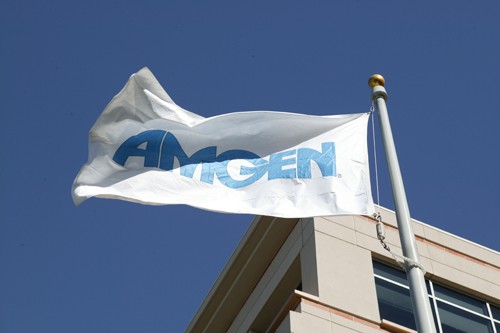
Amgen has become the first company to claim approval for a biosimilar cancer drug in the US, getting the nod for its version of Roche’s $7bn-a-year blockbuster Avastin.
The FDA green light for Mvasi (bevacizumab-awwb) covers most of the approved indications for Avastin (bevacizumab), which include certain patients with colorectal, lung, brain, kidney and cervical cancers, setting up the prospect of a lower-cost alternative to Roche’s big-selling brand, which has been on the market since 2004. Biosimilars typically cost around a third lower than their reference products.
FDA Commissioner Scott Gottlieb said: “Bringing new biosimilars to patients, especially for diseases where the cost of existing treatments can be high, is an important way to help spur competition that can lower healthcare costs and increase access to important therapies.”
In July, the FDA’s Oncologic Drugs Advisory Committee (ODAC) voted 17-0 in favour of approving Mvasi (formerly ABP 215) for six indications, but didn’t consider two other ovarian cancer indications on the grounds that Roche still has orphan drug exclusivity for them until after 2021.
Mvasi reaches the market ahead of rival Avastin biosimilars from Boehringer Ingelheim, Samsung Bioepis, Pfizer and Biocon/Mylan that are all in late-stage development. Roche insists it has patent protection for its brand until 2019 in the US and 2022 in Europe, so if Amgen decides to launch Mvasi before then it will run the risk of damages should Roche win a patent infringement lawsuit.
Meanwhile, Avastin isn’t the only one of Roche’s blockbuster cancer drugs at risk of generic competition. At the ODAC meeting, the panel also backed approval of Mylan’s biosimilar of Roche’s breast cancer therapy Herceptin (trastuzumab) that, like Avastin, loses US patent protection in 2019. Mylan is expecting to hear from the FDA before the end of the month.
Despite the multibillion dollars in sales at risk, in Roche’s favour is the fact that biosimilars don’t tend to prompt a massive decline in sales as seen when small-molecule drugs face generic competition – as they are still costly to produce and so are generally priced at less of a discount.
Roche is also in the midst of a fertile launch period for new medicines, with a clutch of new drugs – including Cotellic (cobimetinib) for melanoma, Alecensa (alectinib) for lung cancer, leukaemia therapy Venclexta (venetoclax) and PD-L1 inhibitor Tecentriq (atezolizumab) for bladder and lung cancer – rolling out onto the market.




